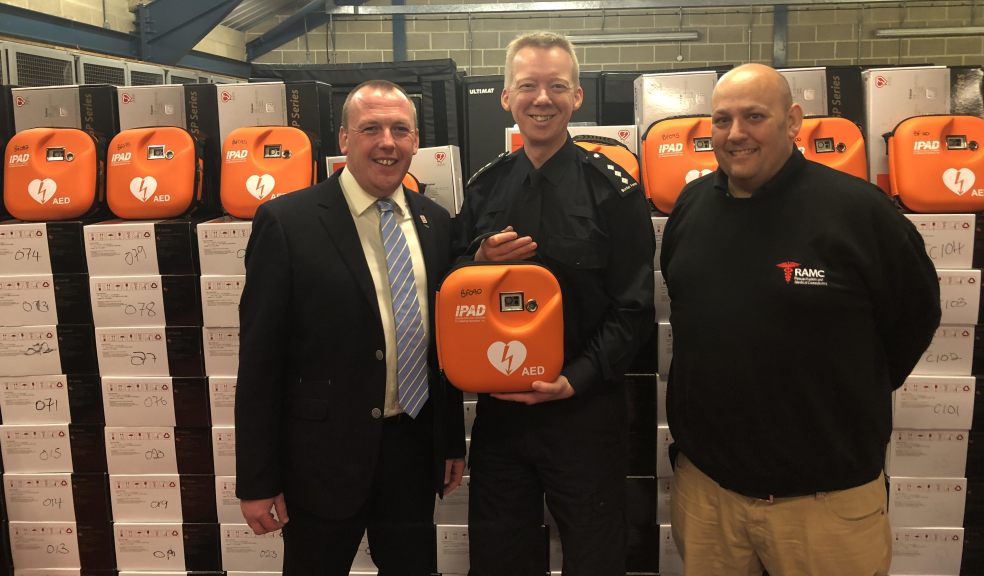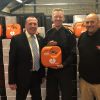
Border Force in lifesaving move
Defibrillators are being put into Border Force sites with more than 20 staff – including offices in Exeter - in a groundbreaking move to improve the survival of anyone having a cardiac arrest.
Survival rates fall from between seven to ten per cent for each minute a defibrillator (AED) is not used, says resuscitation expert Stephen Furnell, who has been campaigning for more than 20 years for the devices at public sites and workplaces.
“Every second counts when someone collapses and stops breathing. These devices are simple to use by anyone with little or no training. The sooner it is used in a collapse, the better the chances of a positive outcome,” adds Stephen, of the Resuscitation and Medical Consultancy, who advises Border Force.
The extra 110 “Heart Re-starters,” delivered by NHS medical suppliers SP Services will add to Border Force’s existing AED’s which were installed into custody areas in 2012.
Border Force Senior Officer Neil Dangerfield said: “Our decision to install AEDs in Border Force workplaces, including some smaller ports and offices, was taken with our wider workforce in mind but many of these areas are also spaces that the public and other workers pass through.
“Expert advice tells us that AEDs mean survival rates from sudden cardiac arrests can be dramatically improved and lives saved. We have taken a very proactive step in putting defibrillators into more of our buildings and I am pleased that Border Force has led the way to protect as many people as possible.”
Paul Watts, head of international business at UK medical suppliers SP Services, said it was an innovative move by Border Force which recognised the lifesaving opportunities of AED’s.
“Many offices with large numbers of employees do not have a single defibrillator in their buildings. To have one in every building with a minimum of 20 staff is a very proactive and positive step.”




















